
Playa Grandi: A Tranquil Caribbean Escape
Playa Grandi, also known as Playa Piskado, is a charming beach tucked away in the picturesque island of Curacao. This hidden gem is famous for its tranquil waters, making it a perfect spot for a relaxing beach day. The beach is set against a backdrop of lush greenery and boasts clear, turquoise waters that are ideal for swimming and snorkeling. One of the main attractions at Playa Grandi is the chance to swim with sea turtles. These gentle creatures often come close to shore, providing a unique opportunity for visitors to observe them in their natural habitat. The beach is also popular with local fishermen, adding to its authentic and laid-back atmosphere. Apart from the natural beauty, Playa Grandi offers basic amenities such as shaded areas, picnic spots, and places to rent snorkeling gear. The nearby village of Westpunt is a great place to sample local cuisine and experience the island’s culture. Whether you are looking to relax on the sandy shores or explore the vibrant underwater life, Playa Grandi offers a slice of paradise for every traveler.
Local tips in Playa Grandi
- Bring your own snorkeling gear for a chance to swim with the sea turtles.
- Visit early in the morning for a quieter experience and to see the fishermen at work.
- Pack a picnic as food options are limited, but don’t miss out on trying local dishes in nearby Westpunt.
- Wear water shoes to navigate the rocky areas near the shore.
Playa Grandi: A Tranquil Caribbean Escape
Playa Grandi, also known as Playa Piskado, is a charming beach tucked away in the picturesque island of Curacao. This hidden gem is famous for its tranquil waters, making it a perfect spot for a relaxing beach day. The beach is set against a backdrop of lush greenery and boasts clear, turquoise waters that are ideal for swimming and snorkeling. One of the main attractions at Playa Grandi is the chance to swim with sea turtles. These gentle creatures often come close to shore, providing a unique opportunity for visitors to observe them in their natural habitat. The beach is also popular with local fishermen, adding to its authentic and laid-back atmosphere. Apart from the natural beauty, Playa Grandi offers basic amenities such as shaded areas, picnic spots, and places to rent snorkeling gear. The nearby village of Westpunt is a great place to sample local cuisine and experience the island’s culture. Whether you are looking to relax on the sandy shores or explore the vibrant underwater life, Playa Grandi offers a slice of paradise for every traveler.
When is the best time to go to Playa Grandi?
Iconic landmarks you can’t miss
Queen Emma Bridge
Experience the 'Swinging Old Lady' of Curaçao: A floating pedestrian bridge offering stunning views and a unique connection between Willemstad's historic districts.
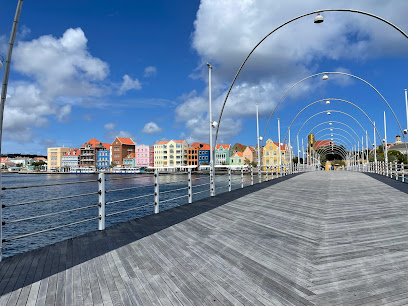
Renaissance Mall & Rif Fort
Experience Curaçao's charm at Renaissance Mall & Rif Fort: a historic fort transformed into a vibrant shopping and dining destination with Caribbean views.
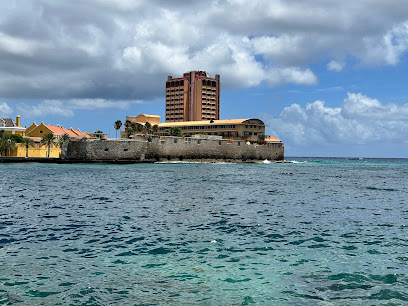
Mambo Beach
Discover Mambo Beach in Curaçao, a vibrant beach destination where sun, sea, and adventure await for every traveler looking to unwind and explore.
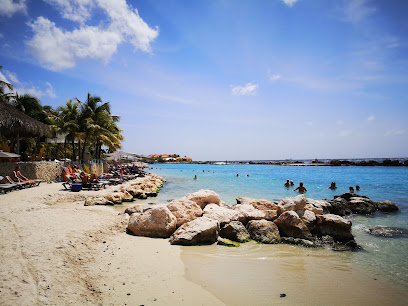
Cas Abao Beach
Discover the stunning beauty of Cas Abao Beach, a tropical paradise in Curaçao with white sands, crystal-clear waters, and vibrant marine life.
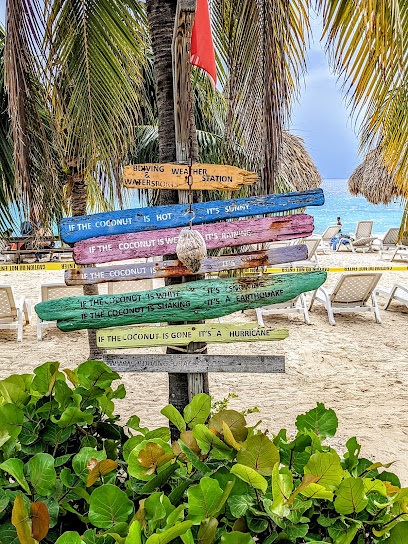
Curaçao Sea Aquarium
Explore the vibrant marine life and interactive exhibits at Curaçao Sea Aquarium, a premier destination for ocean enthusiasts and families.
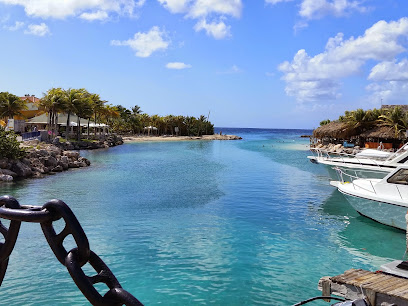
Kokomo Beach
Discover the perfect blend of relaxation and adventure at Kokomo Beach in Curaçao, where stunning views and vibrant culture meet.
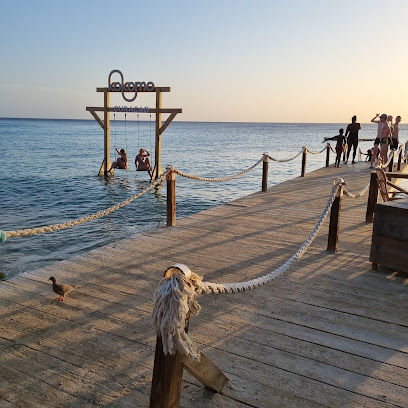
Playa Porto Mari
Experience the charm of Playa Porto Mari, Curaçao's idyllic beach paradise with stunning views, rich marine life, and delightful dining options.
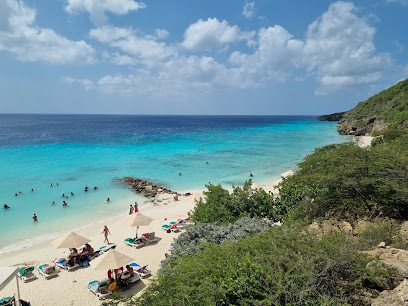
Hato Caves
Discover the breathtaking limestone formations and rich history of Hato Caves, an essential stop for travelers exploring the wonders of Curaçao.
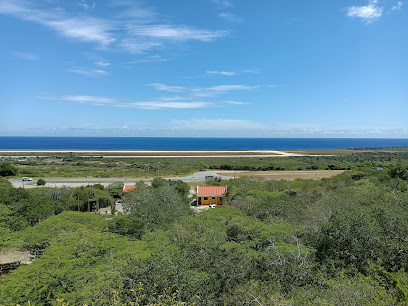
Christoffel National Park
Discover Curaçao's natural beauty and history at Christoffel National Park: hiking, wildlife, and panoramic views await!
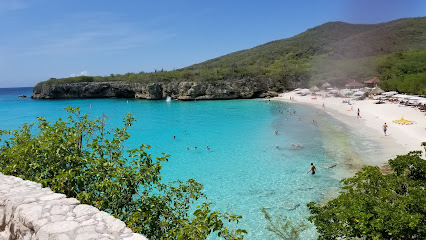
Curaçao Ostrich Farm
Discover the fascinating world of ostriches at Curaçao Ostrich Farm, a unique and interactive experience for the whole family in a stunning tropical setting.
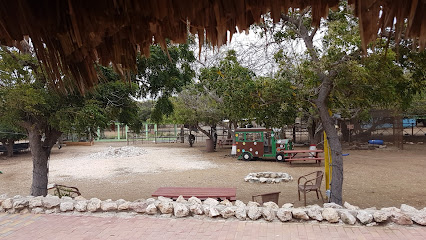
Playa Lagun
Experience the tranquil beauty of Playa Lagun, Curaçao's hidden beach gem, perfect for snorkeling, sunbathing, and unforgettable sunsets.
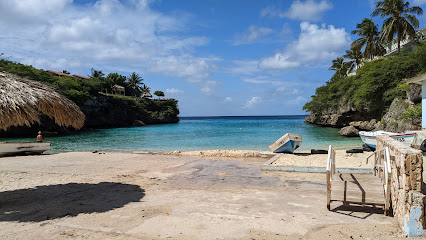
Daaibooi Beach
Discover Daaibooi Beach: Curaçao's serene escape with calm waters, vibrant marine life, and a rich history, perfect for relaxation and exploration.
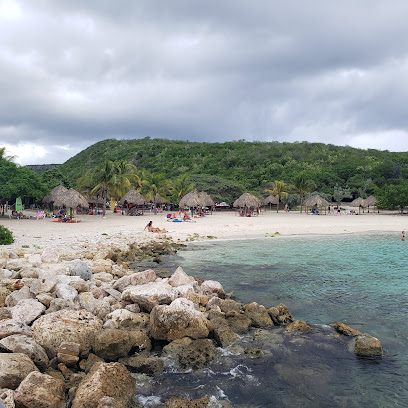
Shete Boka National Park
Explore Curaçao's wild side at Shete Boka National Park: dramatic coastlines, powerful waves, and sea turtle nesting grounds await!
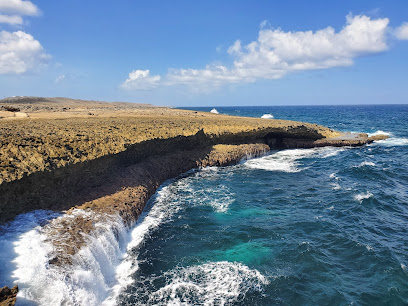
Kleine Knip
Discover the stunning beauty of Kleine Knip, a tropical beach paradise in Curaçao with crystal-clear waters and vibrant marine life.
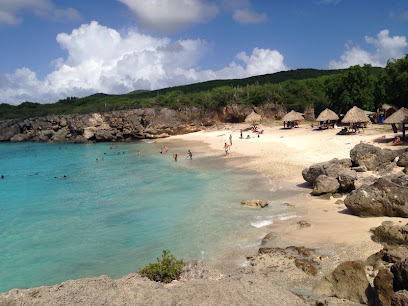
Boka Pistol
Explore Boka Pistol in Westpunt, Curaçao – a natural paradise with stunning views, vibrant marine life, and unforgettable adventures await.
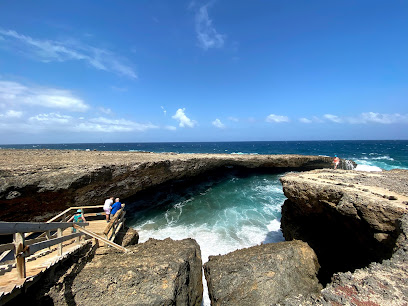
Unmissable attractions to see
Westpunt Aqua Rental
Swim with sea turtles at Playa Grandi in Westpunt, Curaçao, a unique and authentic Caribbean experience where local fishing culture meets incredible marine life encounters.
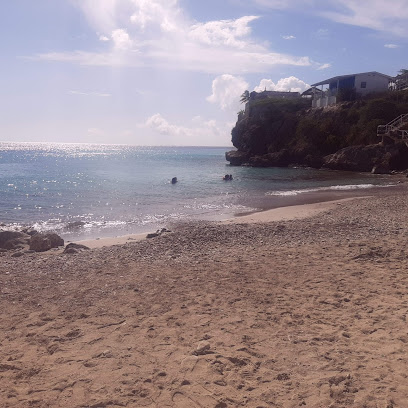
Nr. 1 KALKI Beach Curacao
Discover Curaçao's hidden gem: Playa Kalki, a serene beach offering crystal-clear waters, vibrant marine life, and breathtaking sunsets on the island's northwestern coast.
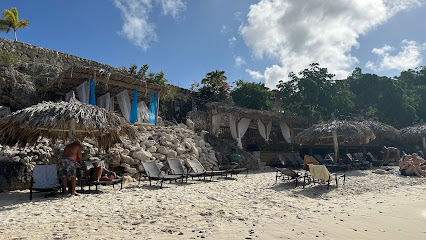
Forti Beach Curacao
Experience the thrill of cliff jumping and breathtaking Caribbean views at Forti Beach, a captivating destination near Westpunt, Curaçao, offering adventure and relaxation.
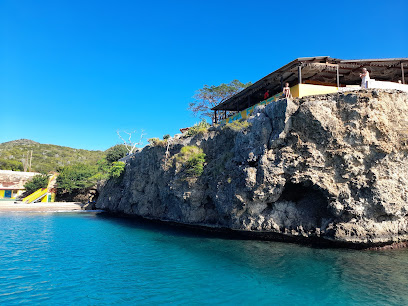
The Sleeping Woman trailhead
Hike through Curaçao's natural beauty at the Sleeping Woman Trailhead in Sabana Westpunt, where stunning Caribbean views and diverse wildlife create an unforgettable experience.
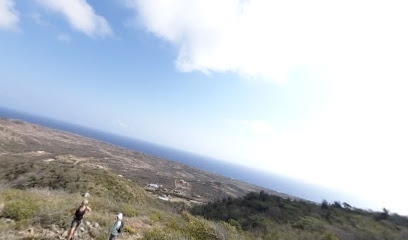
Seru Kabayé Hike Start Point
Hike to panoramic views of Curaçao's Westpunt, where nature's beauty unfolds on well-marked trails, offering a tranquil escape and unforgettable vistas of the Caribbean Sea.
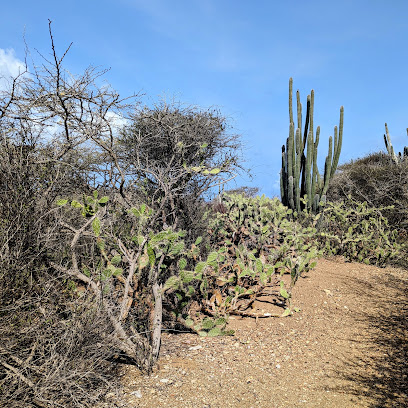
Seru Belefa mountain top
Hike to the summit of Seru Belefa in Curaçao for breathtaking panoramic views of the Caribbean Sea, rugged coastlines, and the island's unique flora and fauna.
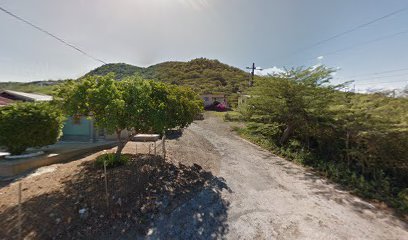
Seru di Sabana mountain top
Hike to panoramic vistas at Seru di Sabana in Curaçao's Westpunt, where stunning Caribbean views and diverse flora create an unforgettable natural escape for every traveler.
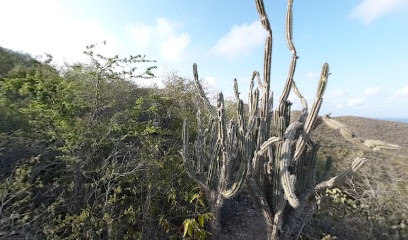
Survey Point 45 (viewpoint)
Discover breathtaking panoramic views of Curaçao's coastline from Survey Point 45, a must-visit scenic overlook near Westpunt for nature lovers and photography enthusiasts.
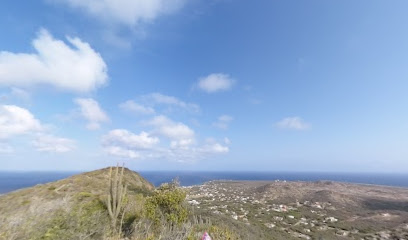
Essential places to dine
Zanzibar Beach & Restaurant
Experience exquisite Caribbean dining with breathtaking ocean views at Zanzibar Beach & Restaurant in Curaçao.
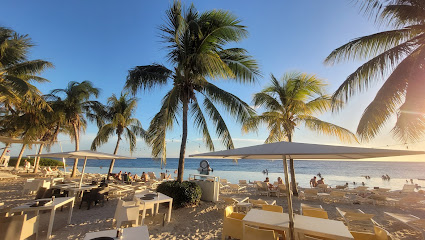
Pirate Bay Curaçao Beach Club and Restaurant
Discover culinary delights and breathtaking views at Pirate Bay Curaçao Beach Club & Restaurant – where tropical relaxation meets vibrant dining.
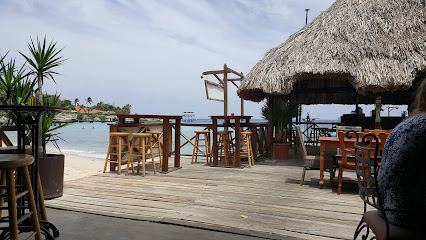
Restaurant & Café Gouverneur De Rouville
Experience exquisite dining with stunning views at Restaurant & Café Gouverneur De Rouville in Willemstad, Curaçao.
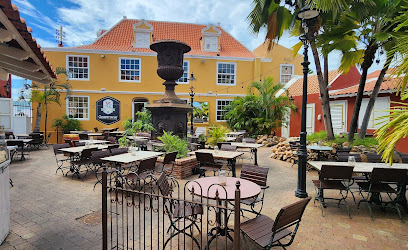
Karakter Beach - Lounge - Restaurant
Experience paradise at Karakter Beach - where exquisite cuisine meets breathtaking ocean views in beautiful Curaçao.
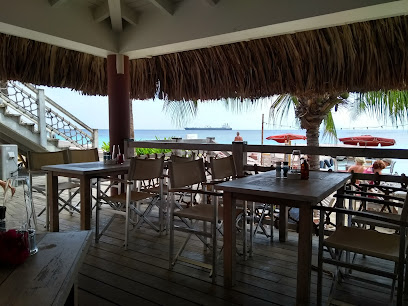
Hemingway
Discover Hemingway in Willemstad: Enjoy delicious cuisine with live music and stunning waterfront views on your visit to Curaçao.
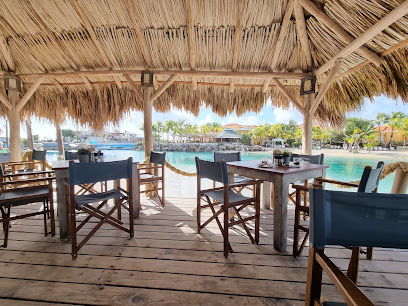
Sea Side Terrace
Discover exquisite seafood dining with stunning ocean views at Sea Side Terrace in Willemstad, Curaçao - a true culinary delight!
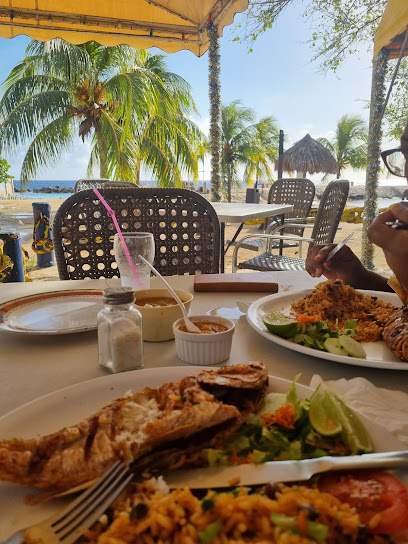
Restaurant Playa Forti
Discover exquisite local cuisine with stunning ocean views at Restaurant Playa Forti in beautiful Curaçao.
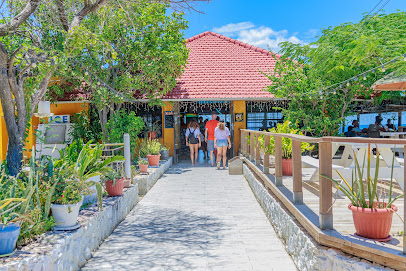
Jaanchie Restaurant
Experience authentic Curaçaoan cuisine at Jaanchie Restaurant in Sabana Westpunt – where every dish tells a story.
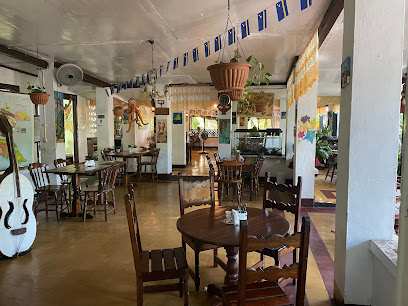
MOOD Beach Curacao
Discover culinary delights and stunning ocean views at MOOD Beach Curacao—your perfect beach getaway.
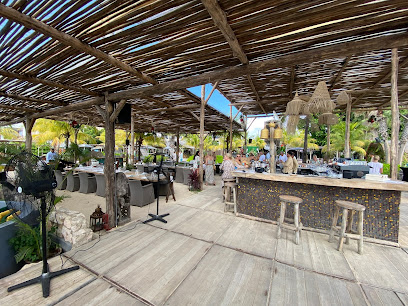
Blue View Sunset Terrace
Experience unforgettable sunsets and delightful local cuisine at Blue View Sunset Terrace in Curaçao's beautiful Westpunt.
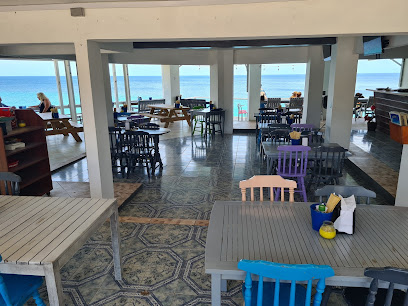
Sol Food
Discover authentic Curaçaon flavors at Sol Food – where local cuisine meets warm hospitality in Sabana Westpunt.
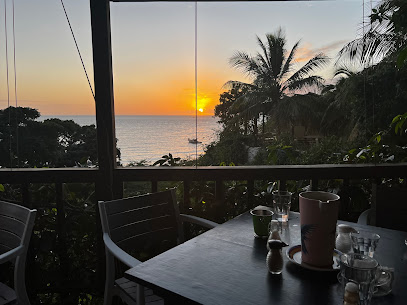
Bahia Beach Bar & Restaurant
Discover Bahia Beach Bar & Restaurant: A culinary oasis in Lagun offering breathtaking views and authentic Caribbean flavors in Curaçao.
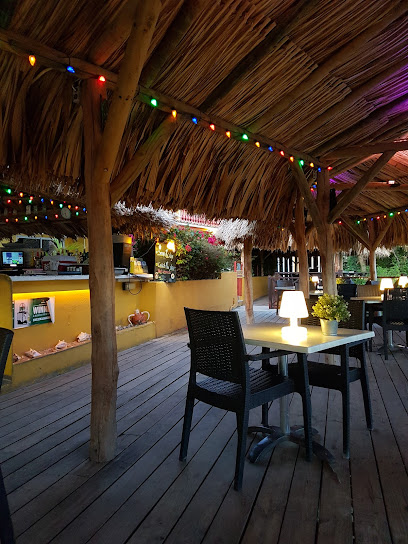
Discover Lagun
Experience authentic Caribbean cuisine at Discover Lagun - where local flavors meet breathtaking views.
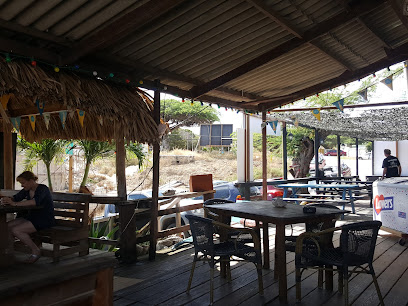
Koraal Rooftop Terrace
Experience exquisite dining with breathtaking sea views at Koraal Rooftop Terrace in Curaçao.
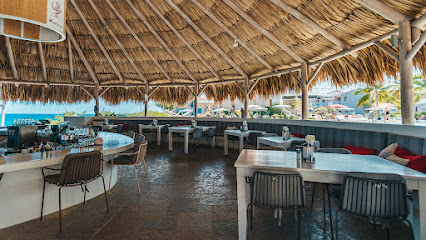
Cactus Cafe
Experience authentic Caribbean flavors at Cactus Cafe in Sabana Westpunt, Curaçao - where every dish tells a story.
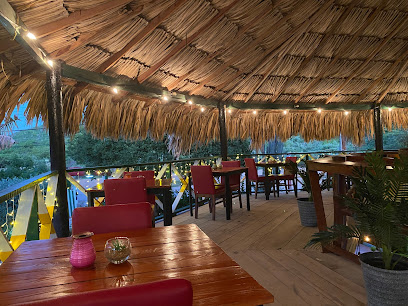
Markets, malls and hidden boutiques
Sambil Curacao
Discover the vibrant shopping experience at Sambil Curacao, where local culture meets international brands in a stunning mall setting.
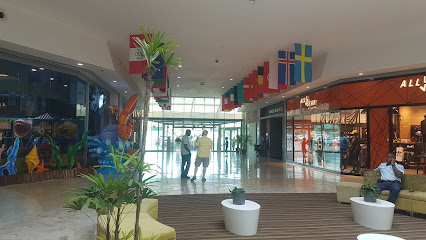
Playa Grandi
Experience the tranquil beauty and vibrant marine life at Playa Grandi, a hidden beach paradise in Curaçao perfect for relaxation and adventure.
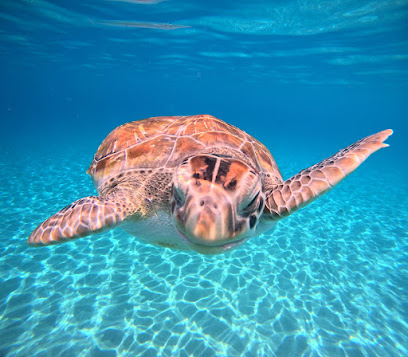
La Curacao
Explore the vibrant La Curacao department store in Willemstad, Curaçao, for a unique shopping experience filled with local treasures and essentials.
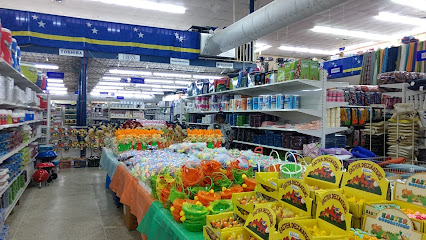
Go West Diving Curacao
Explore the vibrant underwater world of Curaçao with Go West Diving, your ultimate destination for adventure sports and SCUBA diving experiences.
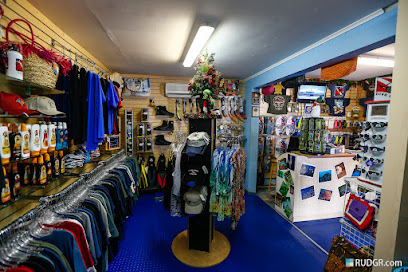
Chichi Shop Punda
Discover unique souvenirs that embody the spirit of Curaçao at Chichi Shop Punda, your go-to destination in Willemstad for authentic local treasures.
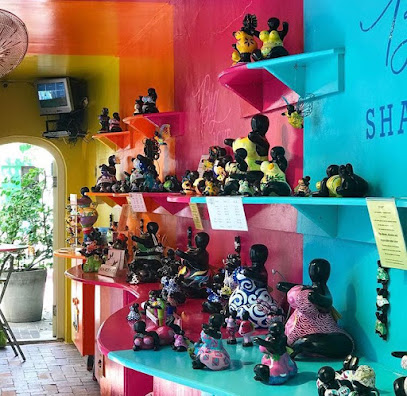
Sweetheart Curacao
Explore Sweetheart Curacao, a delightful toy store in Willemstad, offering an exciting array of toys and games for children and families.
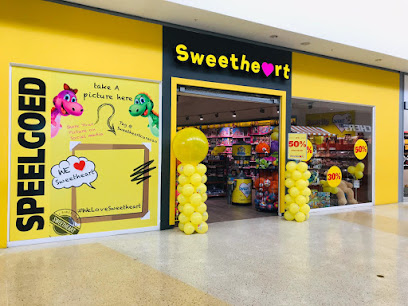
Playa Knip Smoothies
Experience the essence of Curaçao at Playa Knip Smoothies, where refreshing ice cream and smoothies meet breathtaking beach views.
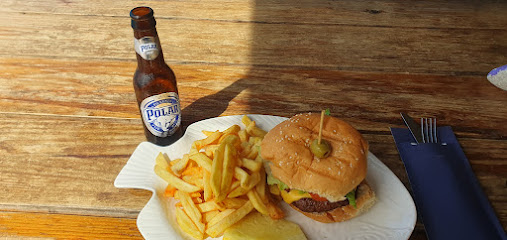
Concept Store by Sea & Sand
Explore the artistic spirit of Curaçao at Concept Store by Sea & Sand, where unique local treasures meet a vibrant shopping experience.
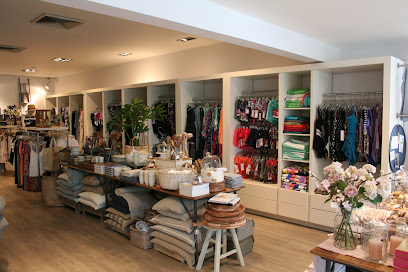
Jolly Fashion by Prakash
Explore Jolly Fashion by Prakash in Willemstad for unique clothing, jewelry, and accessories that embody the vibrant spirit of Curaçao.
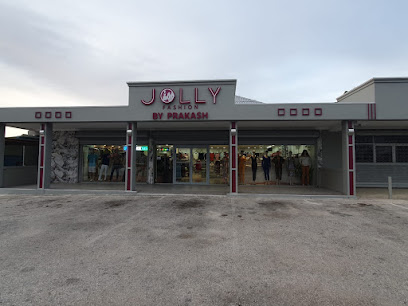
JOY by OPRA
Explore JOY by OPRA, a charming gift shop in Willemstad, Curacao, featuring unique souvenirs and local crafts that capture the island's vibrant spirit.
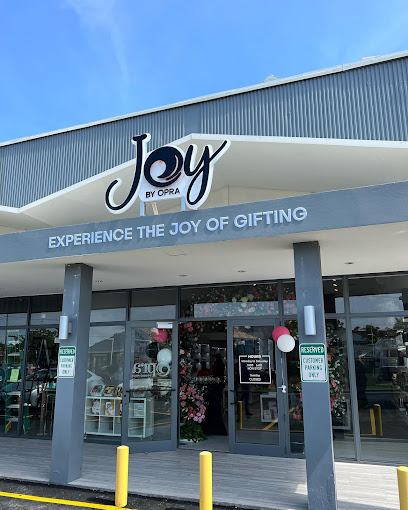
Island Treasures
Discover unique handcrafted souvenirs at Island Treasures in Willemstad, Curaçao, where local artistry meets Caribbean charm.
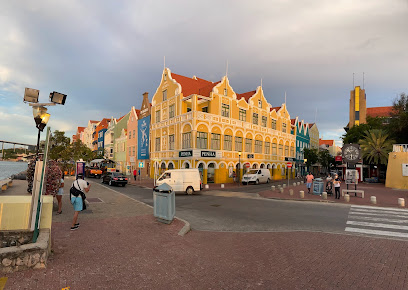
I love Curacao #The hidden beauty of the Caribbean
Explore I Love Curacao, a charming souvenir store in Willemstad offering unique local crafts and gifts reflecting the island's vibrant culture.
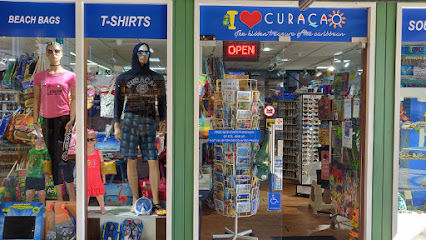
Britt Shop
Explore the colorful Britt Shop for unique gifts and souvenirs that embody the vibrant culture of Curaçao.
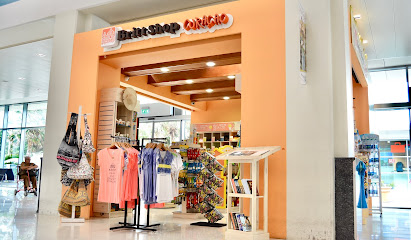
AURA FASHION
Explore AURA FASHION in Willemstad, Curaçao – a vibrant women's clothing store offering stylish apparel at affordable prices.
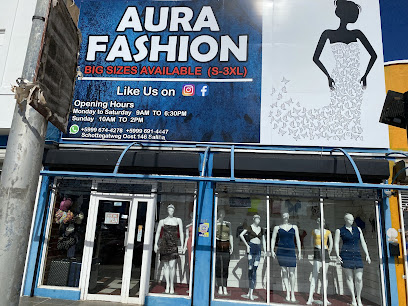
Dolce Vita Boutique
Explore the vibrant fashion scene at Dolce Vita Boutique in Willemstad, Curaçao—where island charm meets stylish apparel and unique accessories.

Essential bars & hidden hideouts
Restaurant Playa Forti
Discover the flavors of Curaçao at Restaurant Playa Forti, where stunning sea views meet authentic Caribbean cuisine in a vibrant atmosphere.
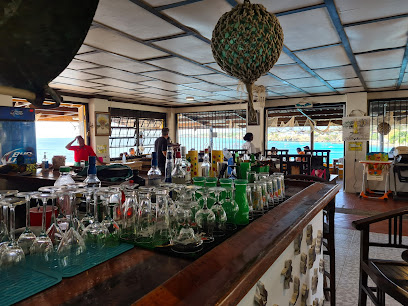
Jaanchie Restaurant
Experience the authentic taste of Curaçao at Jaanchie Restaurant, where local flavors meet breathtaking views in a vibrant island setting.
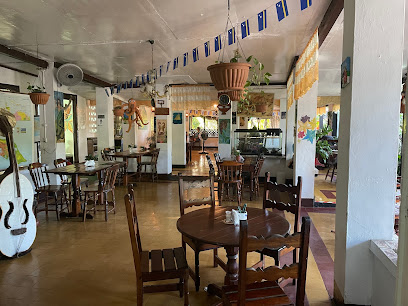
Daaibooi Beach Bar
Experience the vibrant Daaibooi Beach Bar in Willemstad, Curaçao - your tropical escape with refreshing drinks and stunning ocean views.
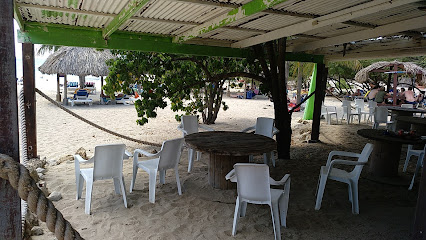
Blue View Sunset Terrace
Experience the exquisite flavors of Curaçao at Blue View Sunset Terrace, where stunning sea views meet culinary delight.
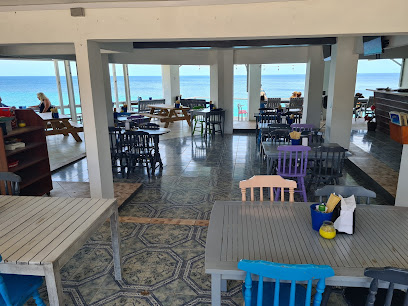
Shelterrock Paradise
Experience the lively atmosphere and delicious Caribbean cuisine at Shelterrock Paradise, a must-visit restaurant in Curaçao with live music.
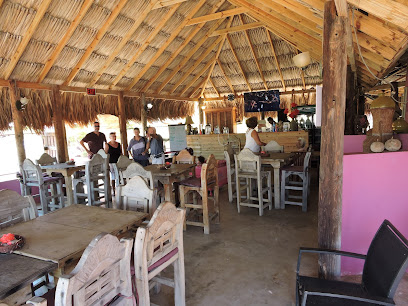
Sol Food
Experience the vibrant flavors of Caribbean cuisine at Sol Food, a top dining destination in Curaçao where every meal is a feast for the senses.
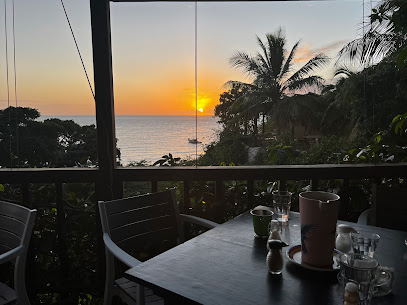
Bahia Beach Bar & Restaurant
Experience the best of Caribbean dining at Bahia Beach Bar & Restaurant, where stunning ocean views meet delicious local flavors.
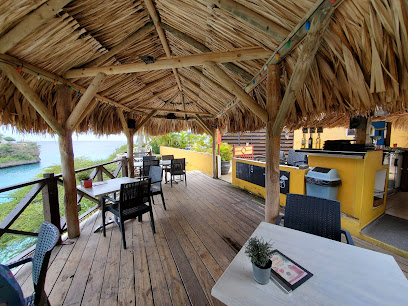
Cactus Cafe
Discover the vibrant flavors of the Caribbean at Cactus Cafe in Sabana Westpunt, Curaçao – a culinary experience not to be missed!
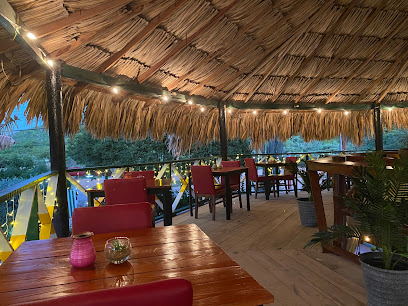
Kunuku Pachi Colá
Experience authentic Caribbean cuisine at Kunuku Pachi Colá, a culinary gem in Sabana Westpunt, Curaçao, where every meal is a taste of island culture.
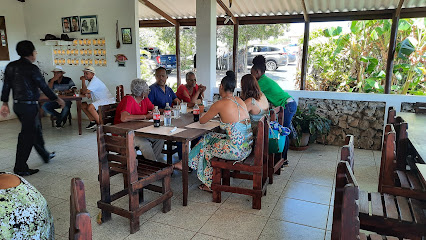
La Fogata Terrace & Sports Bar
Savor the best of Caribbean cuisine at La Fogata Terrace & Sports Bar in Willemstad, where grill delights meet a vibrant atmosphere.
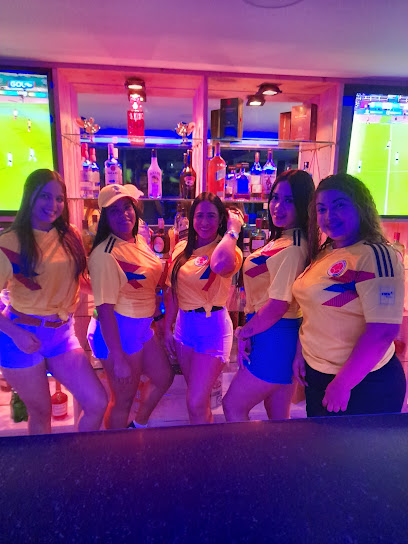
The World Best Mojito Bar
Experience the vibrant flavors of Curaçao with the best mojitos at The World Best Mojito Bar in Willemstad's enchanting Punda district.
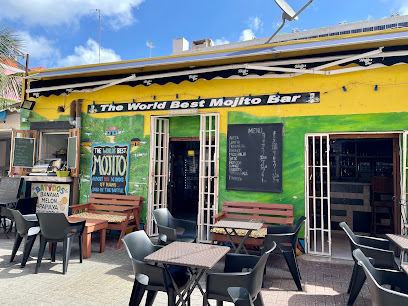
Cast away beach bar curacao
Discover the serene beauty of Cast Away Beach Bar in Curaçao, where tropical vibes meet delicious food and breathtaking ocean views.
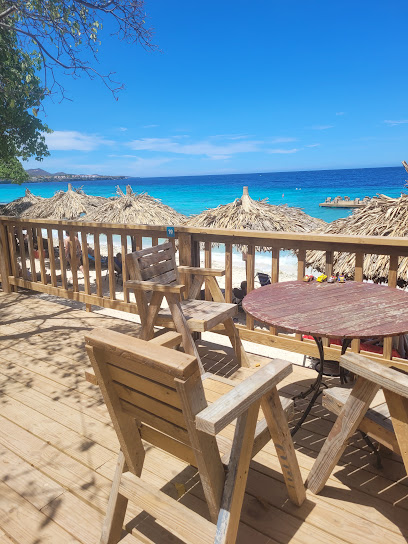
Blend Beach Bar @ Blue Bay Curaçao Golf & Beach Resort
Discover the lively Blend Beach Bar at Blue Bay Curaçao, a tropical retreat with exquisite cocktails and stunning Caribbean views.
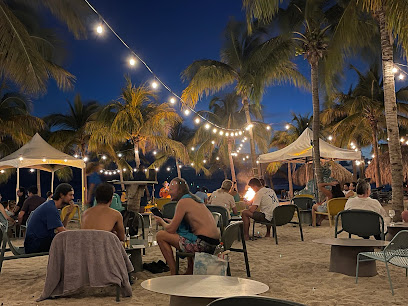
Infinity Pool Bar & Grill
Savor the flavors of the Caribbean at Infinity Pool Bar & Grill, where stunning views meet mouthwatering grilled delights in Willemstad.
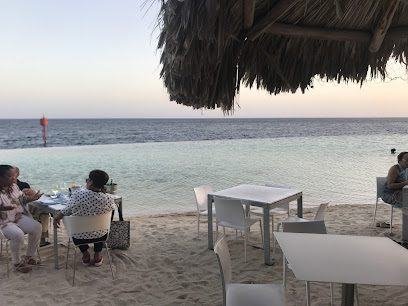
Local Phrases about Playa Grandi
-
- HelloBon dia
[bon dee-ah] - GoodbyeAyo
[ah-yo] - YesSi
[see] - NoNo
[no] - Please/You're welcomePor fabor
[por fah-bor] - Thank youDanki
[dahn-kee] - Excuse me/SorryPardon
[pahr-don] - How are you?Kon ta bai?
[kohn tah bahy] - Fine. And you?Bon. I boso?
[bon. ee boh-soh?] - Do you speak English?Bo ta papia Ingles?
[boh tah pah-pee-ah een-gles?] - I don't understandMi no ta comprende
[mee noh tah kohm-prehn-deh]
- HelloBon dia
-
- I'd like to see the menu, pleaseMi ke mira e menu, por fabor
[mee keh mee-rah eh meh-noo, por fah-bor] - I don't eat meatMi no ta kome karni
[mee noh tah koh-meh kahr-nee] - Cheers!Salud!
[sah-lood] - I would like to pay, pleaseMi ke paga, por fabor
[mee keh pah-gah, por fah-bor]
- I'd like to see the menu, pleaseMi ke mira e menu, por fabor
-
- Help!Yuda!
[yoo-dah!] - Go away!Bai bai!
[bahy bahy!] - Call the Police!Yama polis!
[yah-mah poh-lees!] - Call a doctor!Yama un dokter!
[yah-mah oon dohk-ter!] - I'm lostMi ta perdi
[mee tah pehr-dee] - I'm illMi ta malu
[mee tah mah-loo]
- Help!Yuda!
-
- I'd like to buy...Mi ke kumpra...
[mee keh koom-prah...] - I'm just lookingMi ta solamente mira
[mee tah soh-lah-men-teh mee-rah] - How much is it?Kuantu e ta kosta?
[kwan-too eh tah koh-stah?] - That's too expensiveEsaki ta muchu karo
[eh-sah-kee tah moo-choo kah-roh] - Can you lower the price?Bo por baha e prijs?
[boh por bah-hah eh prees?]
- I'd like to buy...Mi ke kumpra...
-
- What time is it?Kuantu ora e ta?
[kwan-too oh-rah eh tah?] - It's one o'clockE ta un ora
[eh tah oon oh-rah] - Half past (10)Mitad di dies
[mee-tahd dee dees] - MorningMarduga
[mahr-doo-gah] - AfternoonAtardi
[ah-tar-dee] - EveningAnochi
[ah-noh-chee] - YesterdayAyer
[ah-yer] - TodayAwe
[ah-weh] - TomorrowMañana
[mah-nyah-nah] - 1Uno
[oo-noh] - 2Dos
[dohs] - 3Tres
[trehs] - 4Cuater
[kwah-tehr] - 5Cinco
[seen-koh] - 6Seis
[seys] - 7Siete
[syeh-teh] - 8Ocho
[oh-choh] - 9Nuebe
[nw-beh] - 10Dies
[dees]
- What time is it?Kuantu ora e ta?
-
- Where's a/the...?Unda ta...?
[oon-dah tah...?] - What's the address?Kua ta e adres?
[kwah tah eh ah-drehs?] - Can you show me (on the map)?Bo por mustra mi (riba e mapa)?
[boh por moos-trah mee (ree-bah eh mah-pah)?] - When's the next (bus)?Kuando ta e sigiente (bus)?
[kwan-doh tah eh see-nyen-teh (boos)?] - A ticket (to ....)Un tiket (pa ....)
[oon tee-keht (pah ....)]
- Where's a/the...?Unda ta...?
History of Playa Grandi
-
Long before the arrival of European explorers, the Arawak people inhabited the island of Curaçao, including the area now known as Playa Grandi. These indigenous communities thrived on fishing, agriculture, and trade with neighboring islands. Archaeological evidence, such as pottery fragments and ancient tools, reveals the rich and resourceful culture of the Arawak people.
-
In 1499, Spanish explorers led by Alonso de Ojeda arrived in Curaçao. The Spanish initially colonized the island, but found it less valuable than other Caribbean territories due to its lack of precious metals. However, they left a lasting impact on the local culture and geography, including introducing European plants and animals.
-
By 1634, the Dutch had seized control of Curaçao from the Spanish. The Dutch West India Company began to develop the island as a key trading hub in the Caribbean. Playa Grandi, with its strategic coastal location, became an important point for fishing and trade activities, contributing to the island's economic growth.
-
During the 17th century, Curaçao, including Playa Grandi, was frequently targeted by pirates and privateers. These sea raiders attacked merchant ships and settlements, seeking valuable goods and supplies. The constant threat of piracy necessitated the construction of fortifications and the establishment of naval patrols to protect the island’s inhabitants.
-
In the 18th century, salt production became a significant industry in Curaçao. Playa Grandi's coastal salt pans were integral to this industry, with large quantities of salt being harvested and exported to Europe and the Americas. This economic activity brought prosperity and further development to the region.
-
The abolition of slavery in 1863 marked a significant turning point in Curaçao’s history. Freed slaves from plantations and salt works, including those near Playa Grandi, began to establish free communities. This period saw the growth of a more diverse and vibrant cultural landscape, as former slaves contributed to the island's economy and society.
-
In the mid-20th century, Playa Grandi began to transform into a popular tourist destination. With its pristine beaches and clear waters, the area attracted visitors from around the world. Efforts were made to preserve the natural beauty and cultural heritage of Playa Grandi, leading to the development of eco-friendly tourism and local businesses catering to the growing number of tourists.
Playa Grandi Essentials
-
Playa Grandi is located in the northwestern part of Curacao. The nearest airport is Hato International Airport (CUR), which is approximately 30 kilometers away from Playa Grandi. From the airport, you can rent a car, take a taxi, or use a shuttle service to reach Playa Grandi. The drive typically takes around 45 minutes via the Weg Naar Westpunt road.
-
While Playa Grandi itself is best explored on foot, having your own vehicle is the most convenient way to explore the surrounding areas. Car rentals are available at Hato International Airport and in Willemstad. Taxis are also an option, though they can be expensive for longer distances. Public buses connect Playa Grandi to other parts of Curacao, but schedules can be irregular. For a more flexible and local experience, consider renting a scooter or bicycle.
-
The official currency in Curacao is the Netherlands Antillean Guilder (ANG), but US dollars are widely accepted. Credit cards are commonly used in hotels, restaurants, and larger shops. However, it's advisable to carry some cash for smaller establishments and local markets. ATMs are available in major areas, but it's a good idea to withdraw sufficient cash before heading to more remote locations like Playa Grandi.
-
Playa Grandi is generally safe for tourists, but standard precautions should be taken. Avoid leaving valuables unattended on the beach and be cautious when walking alone at night. Areas with higher crime rates targeting tourists include parts of Willemstad, particularly Otrabanda and certain sections of Punda. Always stay vigilant and avoid poorly lit or deserted areas at night.
-
In case of emergency, dial 911 for immediate assistance. Playa Grandi has limited medical facilities, so for serious medical issues, you may need to go to the main hospital in Willemstad, Curaçao Medical Center. It's highly recommended to have travel insurance that covers medical emergencies. Pharmacies are available in larger communities, so it's wise to bring any essential medications with you.
-
Fashion: Do dress comfortably and casually, but bring a cover-up for visiting religious sites or formal establishments. Avoid wearing overly revealing clothing in public spaces. Religion: Do respect local customs and traditions. When visiting churches, dress modestly and remain quiet. Public Transport: Do be polite and offer your seat to elderly passengers. Don't eat or drink on public transport. Greetings: Do greet people with a smile and a friendly 'Bon dia' (Good morning) or 'Bon tardi' (Good afternoon). Eating & Drinking: Do try local delicacies like Keshi Yena and Funchi. Don't refuse food or drink offerings as it may be considered impolite.
-
To experience Playa Grandi like a local, visit the local fish market where you can buy fresh catch directly from fishermen. Engage with locals who are often friendly and willing to share tips about the best snorkeling spots. Don't miss the opportunity to swim with sea turtles, a popular activity at Playa Grandi. For a unique dining experience, try one of the local food trucks (called 'truk'i pan') that offer delicious and affordable meals.
Nearby Cities to Playa Grandi
-
Things To Do in Westpunt
-
Things To Do in Soto
-
Things To Do in Barber
-
Things To Do in Sint Michiel
-
Things To Do in Julianadorp
-
Things To Do in Willemstad
-
Things To Do in San Nicolas
-
Things To Do in Savaneta
-
Things To Do in Santa Cruz
-
Things To Do in Pos Chiquito
-
Things To Do in Paradera
-
Things To Do in Sero Blanco
-
Things To Do in Tanki Leendert
-
Things To Do in Oranjestad
-
Things To Do in Noord








